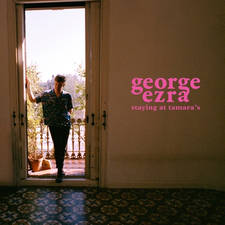Legal High Ivory Wave To Be Banned
The Government's announced that the so-called legal high Ivory Wave will become a class B controlled drug.
The move comes after the Government's drugs advisers said it should be banned.
An order making the substance illegal will be put before Parliament this autumn, the Home Office said.
The mother of an Isle of Wight man who died after taking Ivory Wave said in May that the Government's failure to ban it was an ''insult to her son's memory''.
Professor Les Iversen, ACMD chairman, said:
''The health effects of desoxypipradrol (2-DPMP, sold as Ivory Wave) and its related compounds correspond with those related to other Class B drugs and have the potential to cause harm.
''That is why we are recommending that the Government takes action to control the substance under the Misuse of Drugs Act''.
The National Poisons Information Service in Edinburgh highlighted a number of cases from last summer in which patients
reported symptoms including hallucinations, paranoia and severe agitation following the use of 2-DPMP, the advisers said.
In some cases the symptoms were still being felt between five and seven days after the initial use of the drug, they added.
An inquest heard in May that Michael Bishton showed ''bizarre and paranoid'' behaviour in the days before he died.
The 24-year-old chef from Ryde was seen running along the edge of a cliff at Culver Down with his arms outstretched on the morning of August 13 last year.
The next day a local fisherman found Mr Bishton's body in the sea, the inquest at Newport was told.
A few days earlier, Mr Bishton's partner, Sammy Betts, called police after he started running around the house with a knife because of paranoid delusions.
Mr Bishton was taken voluntarily to the mental health unit of St Mary's Hospital in Newport where he was advised he had had a psychotic reaction to the Ivory Wave drug, as well as to alcohol and mephedrone.
Tamsin Owen, Mr Bishton's mother, said his behaviour had been ''bizarre'', ''like a wild animal'' and ''out of character''. She described it as a ''self-induced madness''.
She said her son told her he had bought Ivory Wave, which was sold as relaxing bath salts, for £15 a packet from the Spaced Inc shop in Ryde, as well as another legal high called NRG-1.
A post-mortem examination showed that he died of a brain injury and toxicology results showed only small amounts of alcohol and desoxypipradrol, the active ingredient of Ivory Wave.
Recording an open verdict, Isle of Wight coroner John Matthews said:
''The ingestion of this legal high may have been a very strong contributory factor to the behaviour which was out of character.''
Speaking outside the court, Ms Owen said:
''Just because it has legal on the front of it and you can go to the shop and buy it doesn't mean that it will be safe. Please do not do it.
''More studies should be done before anything is allowed in the shops. How can you just go and buy these things that do these things to families?
''It's an insult to the memory of my son.''
The shop where Mr Bishton bought the Ivory Wave, Spaced Inc in Ryde, and its sister shop in Newport, were raided by police just days after his death.
Two men were arrested but later released with no further action to be taken.
A second inquest in Newport heard that another man who took Ivory Wave, Guy Ebsworth, died within days of Mr Bishton.
The body of the 33-year-old was found on August 13 last year in a small locker on a yacht in Odessa boatyard in Newport. He had been employed to help renovate the yacht by family friend Richard Coles.
Mr Ebsworth was last seen on August 6 heading to a fireworks display at the Cowes Week yachting event, the inquest was told. He did not turn up to go sailing with his uncle the next day.
A post-mortem examination of the body found traces of desoxypipradrol.
But the inquest was told that because so few deaths have been linked to the substance it was not known if the amount in his body could have killed him, meaning the cause of death was not established.
Crime Prevention Minister Baroness Browning said:
''The ACMD's advice on Ivory Wave reinforces what we already know - that substances touted as 'legal highs' contain dangerous and potentially illegal substances.
''Young people in particular may often equate legal with 'safe' and are quite simply playing a high risk game of lottery by taking substances without knowing what they contain or their potentially harmful effects.''
She went on: ''We are determined to tackle the harms posed by these drugs and prevent them gaining a foothold in the UK.
''The generic definition will ensure those trying to profit from this market cannot get round the ban.
''Controlling these substances sends a clear message to users, including young people who may be considering using them, as well as to those producing and supplying them.''


